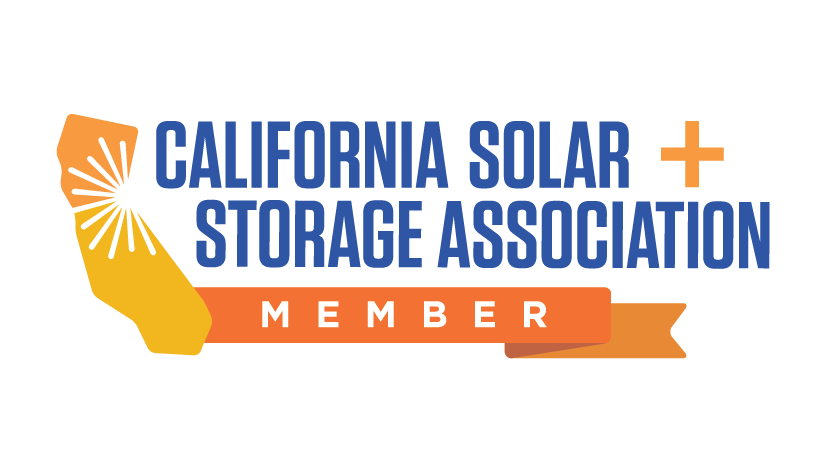If you live in California, you’re probably very aware of the popularity of using solar panels to generate electricity for your home or business. Solar power is a clean, renewable energy source that can also save you money on electric bills. However, there are both pros and cons of going solar that you should consider before making the decision to invest in solar panels. Let’s take a look at some of the advantages and disadvantages of this renewable energy option.
The Pros and Cons of Solar Energy
One of the greatest benefits of solar power is that it’s a clean, renewable source of energy that doesn’t produce any pollutants or emissions. This is particularly important for people who strive to reduce their carbon footprint. The average American home produces about 14,920 pounds of carbon dioxide annually. Installing solar panels decreases that annual output by more than 3,000 pounds. (Consumer Affairs).
The Advantages of Solar Energy
It’s also an economically sound decision. Over time, a homeowner or business can save thousands (or even tens of thousands) on electricity bills. This is especially true if battery storage is included with the installation. The use of battery storage can make you energy independent, protecting you from rising energy costs.
In addition, homeowners and businesses can send their surplus solar energy back to the grid for a profit. Each state and investor-owned utility company has its own calculation system for determining savings based on Net Billing.
The Advantages and Disadvantages of Solar Energy: What is Net Metering 3.0?
Here’s a more in-depth explanation of the California Net Metering 3.0.
Another advantage to installing solar panels is that the value of your home increases. The National Renewable Energy Laboratory, reports that for every dollar a solar panel installation saves you on your electrical bills, your home value increases by $20. Also, homeowners can expect a 4% higher resale value on their homes compared to those without solar panels. And homes with solar panels appeal to home buyers since solar panels are low-maintenance and can last upwards of 25 years.
And finally, there are generous financial incentives available to home and business owners who choose to go solar. These incentives may include federal tax savings, rebates from utility companies, and state tax exemptions or credits.
And you can find out more about California’s specific solar rebates and incentives HERE.
The Federal Investment Tax Credit (ITC) ensures that for installations completed from 2023 – 2032, a one-time deduction of 30% of the installation costs can be deducted from your federal taxes. If the taxes you owe that year are less than the credit you earned, your credit will roll over to the following year.
Below is a list of the tax exemptions of some neighboring states:
Sales Tax Exemption Property Tax Exemption
California: no exemption 100% until 1/2/2025
Colorado: 100% 100%
Oregon: no state sales tax 100%
Nevada: no exemption no exemption
Arizona: 100% 100%
For a full list of states that offer exemptions on sales tax and property tax, click HERE.
The Disadvantages of Solar Energy
The main drawback of installing solar panels is the high initial installation cost. Depending on size and location, installing a full system can cost anywhere from $10K – $20K – a hefty price tag for some households. And if a homeowner needs to move, it’s nearly impossible to move a solar system to another location.
In some cases local building codes or homeowner associations may require special permission before installation can begin, so be sure to check ahead before you start any installation. And even if approval isn’t a concern, some roof types, urban areas, and surrounding impediments could prohibit an installation.
Additionally, under certain conditions, your solar panel system won’t generate enough power – cloudy days, at night, during winter months, in certain geographical regions – leaving you dependent on other sources such as batteries or grid power. And battery storage can be an expensive investment, too.
Finally, it could be difficult to find a solar energy company in certain areas. States that do not have a robust solar industry, small towns, or rural areas may not have local solar energy companies, making installation of solar panels inconvenient.
The Advantages and Disadvantages of Solar Energy: An Overview of the Pros and Cons of Installing Solar Panels
Pros
- Solar power is a renewable source of clean energy that helps reduce your carbon footprint.
- Homeowners can expect a significant reduction in energy costs.
- The use of battery storage can make you energy independent, protecting you from rising energy costs.
- Solar panels improve your home’s value, last upwards of 25 years, and are low maintenance.
- There are many financial incentives from the government to ease the cost of installation..
Cons
- The initial installation cost can be quite high.
- It’s nearly impossible to move a solar system to another location.
- There can be space constraints and limitations due to your geographic area.
- Some roof types, urban areas, and surroundings are prohibitive.
- Under certain conditions, your solar panels may not produce enough energy.
- It could be difficult to find a solar energy company in certain areas.
So … Is Installing Solar Panels Worth the Investment?
For most people, investing in solar energy is worth the initial cost. However, there may be certain circumstances that make installing solar panels prohibitive. Just like making any important investment, be sure to do your homework first. Factors such as available financial incentives, your state’s net metering system, your region and climate, and your home size and location will affect your decision. Ultimately only you can decide if going solar makes sense for your household budget and lifestyle.
If you have any questions about installing solar panels to your home or business, please feel free to contact us for a FREE CONSULTATION or a FREE QUOTE.


Leave a Reply